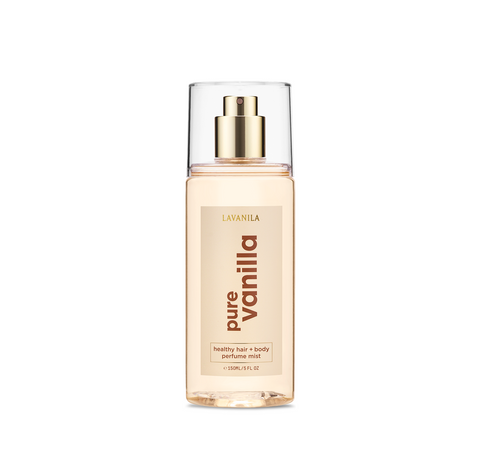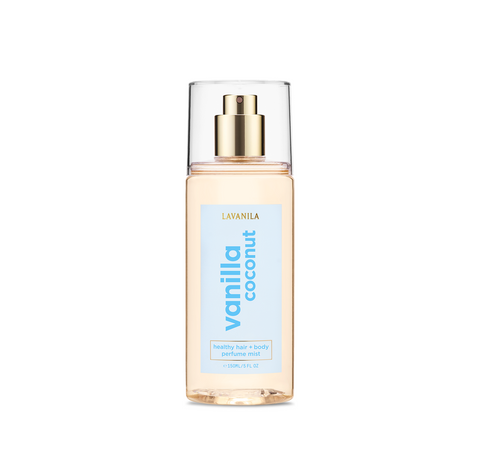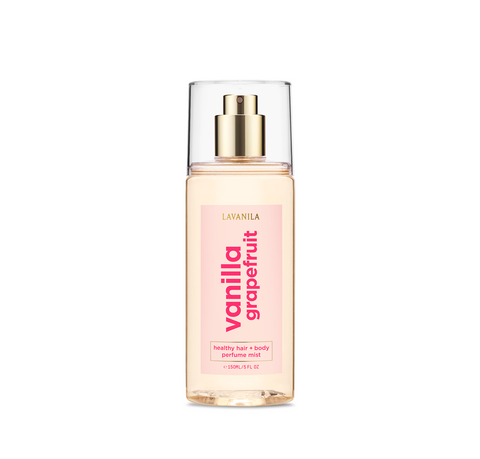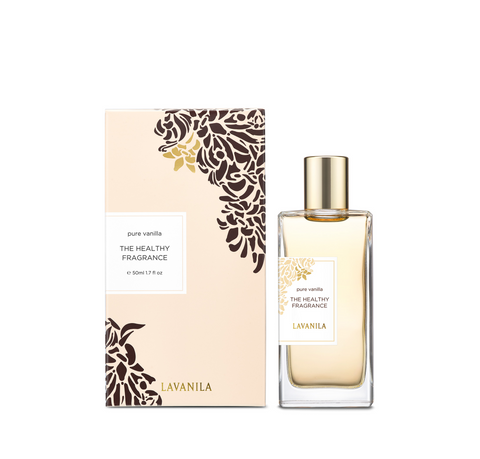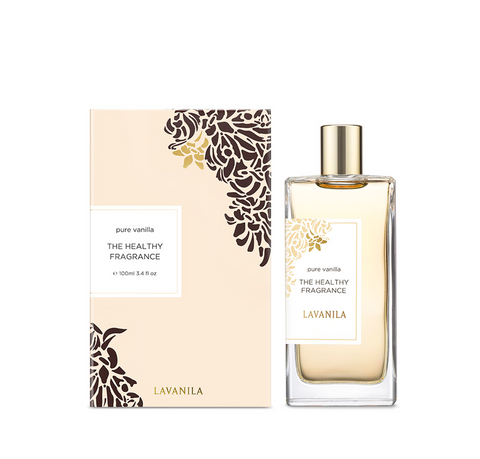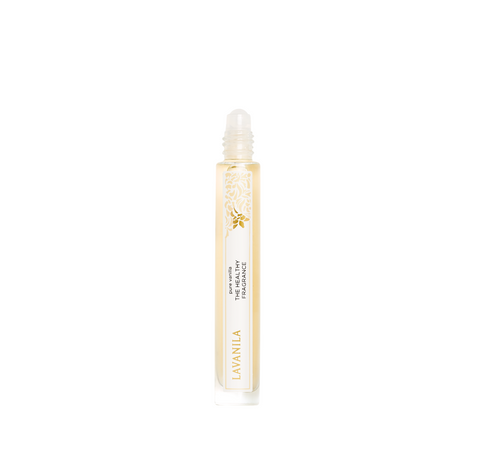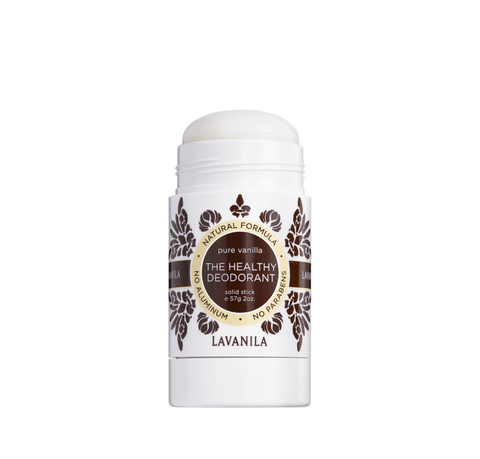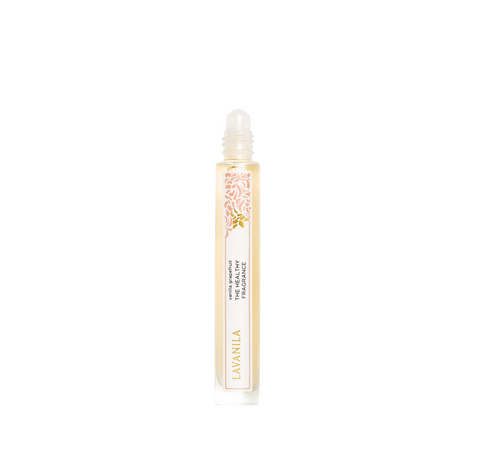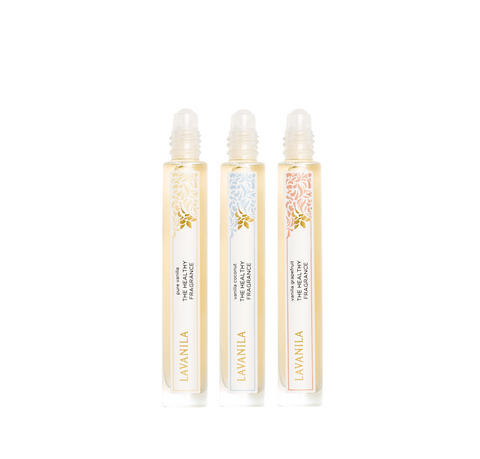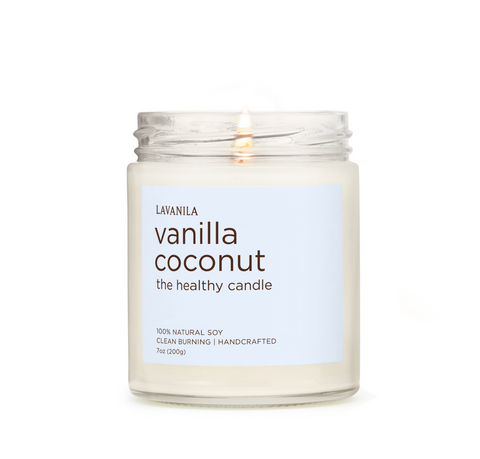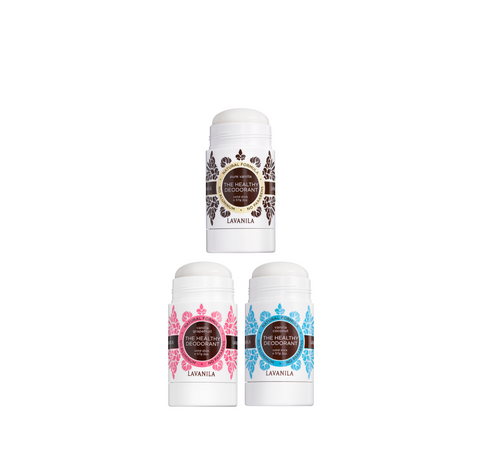Perfume has long been a cherished part of daily self-care routines, offering a sense of luxury, personal expression, and comfort. A carefully chosen scent can evoke memories, enhance confidence, and complete an outfit, making fragrance a subtle yet powerful part of everyday life. But in recent years, more people are pausing to ask an important question: is perfume bad for your lungs? These concerns go beyond mere preference—they reflect a growing awareness of air quality, respiratory health, and the invisible particles we inhale every day. What we breathe matters just as much as what we put on our skin, and fragrance plays a surprisingly complex role in shaping indoor air environments.
Every spray of a conventional perfume releases a mixture of volatile molecules that can linger in the air and reach our respiratory system, sometimes causing irritation or discomfort over time. For individuals seeking cleaner, healthier beauty choices, understanding these effects is essential. Natural, plant-based perfumes, like those in Lavanila’s collection, are thoughtfully crafted to deliver long-lasting fragrance without introducing unnecessary synthetic chemicals into the air, offering a safer, more mindful alternative for respiratory wellness.
15% Discount on Your First Order
Subscribe for exclusive sales and promo codes
- Enjoy a 15% discount on your first purchase
- Be the first to know about our special sales and promotions
- Receive unique promo codes available only to our subscribers
In this article, we’ll explore how perfume interacts with your lungs, what happens if you inhale perfume, which ingredients may pose risks, and why natural, non-toxic scents can provide a safer, breathable, and enjoyable fragrance experience.
Why People Are Asking If Perfume Is Bad for Your Lungs
Growing awareness around air quality and respiratory health
Over the past decade, awareness around air quality has skyrocketed. People are increasingly conscious of how pollutants, allergens, and chemicals in their homes affect respiratory health. From urban smog to indoor dust, we now know that the air we breathe can have cumulative effects over time. This heightened understanding has naturally extended to personal care products, including perfumes, where inhaled ingredients can contribute to daily chemical exposure.
For many, asking is perfume bad for your lungs isn’t about fear—it’s about understanding risk. Traditional fragrances often rely on synthetic compounds, which can linger as tiny airborne particles and be inhaled repeatedly. Even short-term exposure may irritate sensitive respiratory systems, especially for children, older adults, or anyone with asthma or allergies.
What scientists and clean beauty experts are discovering about synthetic fragrance
Recent studies have shed light on how certain synthetic fragrance ingredients may contribute to respiratory discomfort. Scientists are exploring links between repeated inhalation of volatile organic compounds (VOCs) and mild irritation, coughing, or temporary airway sensitivity. Clean beauty experts emphasize that these concerns are not always immediate or severe, but they do underscore the importance of knowing what’s in the products we use every day.
Natural perfume creators have responded to these findings by crafting formulas that minimize airborne irritants. By relying on essential oils and naturally derived ingredients instead of complex synthetic blends, these fragrances reduce the risk of repeated respiratory exposure, allowing users to enjoy scent without worry.
What Happens If You Inhale Perfume Too Often
Understanding how fragrance particles enter your respiratory system
When you spray conventional perfume, the mist contains fine particles suspended in the air. These particles can travel through the nasal passages into the lungs, where they encounter delicate tissues. Inhaling fragrance isn’t harmful for most people in moderation, but repeated, daily exposure can introduce a variety of synthetic compounds that may irritate the respiratory system over time.
 Lavanila’s aloe-based mists offer a clean, gentle way to adapt with the seasons while nourishing your hair and uplifting your senses all year long.
Lavanila’s aloe-based mists offer a clean, gentle way to adapt with the seasons while nourishing your hair and uplifting your senses all year long.
The concern is cumulative. Just as air pollution or cigarette smoke can contribute to lung stress, inhaled fragrance molecules—especially those not disclosed on labels—add to the load of airborne chemicals your body must process.
Short-term effects of inhaling synthetic perfume mist
Short-term inhalation of synthetic fragrances may result in:
-
Mild throat or nasal irritation
-
Coughing or slight respiratory discomfort
-
Headaches in sensitive individuals
-
Temporary allergy-like reactions
These effects vary widely depending on the person’s sensitivity, the concentration of fragrance molecules, and the size of the indoor space. Clean, naturally derived perfumes are generally less likely to provoke these reactions, thanks to simpler, plant-based formulas and fewer volatile chemicals.
The Hidden Ingredients in Conventional Perfume
Common synthetic chemicals linked to irritation and sensitivity
Conventional perfumes often contain a cocktail of synthetic compounds used to boost projection, longevity, and color stability. Among the most common are phthalates (used to bind scent to skin), synthetic musks, and aldehydes. These chemicals can help create a bold fragrance effect but are also among the most frequently cited causes of irritation in sensitive users.
Phthalates, in particular, have drawn attention due to their potential to interfere with hormone balance and contribute to respiratory irritation. Synthetic musks can accumulate in the environment and are known for their persistence in air and water. While regulations differ between regions, many consumers are now choosing to avoid these ingredients altogether in favor of cleaner formulations that rely on botanical bases.

cruelty free

paraben free

phthalate free

all natural fragrance
If you are wondering is perfume bad for your lungs, it’s helpful to know that a clean vanilla perfume can provide a long-lasting, elegant scent using pure essential oils and organic sugar cane alcohol—without relying on heavy synthetics that could irritate the respiratory system or reduce indoor air quality.
Why “fragrance” on a label can mean dozens of undisclosed ingredients
One of the challenges for consumers is that the term “fragrance” or “parfum” on a product label often functions as a catch-all category. It can legally represent dozens—or even hundreds—of individual compounds, many of which are not required to be disclosed. This lack of transparency makes it difficult to know what you’re actually applying or breathing in.
From a clean beauty standpoint, this is where ingredient integrity matters most. Brands committed to transparency tend to list their essential oils and botanical components openly. This not only builds trust but allows customers to make informed choices about what they bring into their homes and onto their skin. Choosing a clean vanilla-based perfume made with natural ingredients gives you that confidence, offering a scent that is beautiful, authentic, and safe to enjoy.
How Perfume Affects Breathing and Air Quality Indoors
What happens when perfume molecules linger in the air
When perfume is sprayed indoors, its particles remain suspended in the air long after the scent has faded from your skin. These molecules mix with other airborne substances—like dust, cleaning products, and cooking fumes—creating a complex cocktail that can affect indoor air quality. Over time, especially with frequent use, the buildup of volatile chemicals can make indoor air feel heavy or stale.
Synthetic perfume molecules are particularly persistent because they’re designed to linger. Their extended evaporation process helps a scent last longer but also increases the likelihood of repeated inhalation. For individuals with sensitive respiratory systems, this can lead to mild irritation or headaches.
Clean, plant-based fragrances behave differently. Made with essential oils that naturally disperse, they blend more harmoniously into the air and fade without leaving synthetic residues behind. The experience is softer, cleaner, and much less likely to interfere with breathing comfort.
Why good ventilation matters when using traditional perfumes
Ventilation plays a crucial role in how perfume interacts with indoor air. Without proper airflow, scent molecules and solvents can accumulate, particularly in smaller spaces. This can make the air feel dense and may cause sensitivity for those prone to allergies or asthma.
Good ventilation—through open windows or air purifiers—helps clear the space, ensuring that the fragrance experience remains pleasant rather than overpowering. While this is especially important for conventional perfumes, clean natural fragrances tend to disperse more easily and don’t contribute to heavy airborne buildup.
For those who love to wear perfume daily, choosing a clean, low-emission formula can make a noticeable difference. It’s a way to enjoy scent without worrying about compromising air quality or comfort.
Understanding VOCs (Volatile Organic Compounds) in Perfume
What VOCs are and how they impact indoor air and lung health
Volatile Organic Compounds (VOCs) are gases released from certain solids or liquids—including many household and personal care products. In perfumes, VOCs are what help the scent travel through the air. However, some synthetic VOCs can react with indoor air pollutants or ozone, creating secondary compounds that may contribute to respiratory irritation.
Exposure to high concentrations of VOCs has been associated with short-term symptoms like headaches, dizziness, or nasal discomfort. While most perfumes release VOCs in small amounts, regular or excessive use of synthetic fragrances in enclosed spaces can amplify their impact. For this reason, people are becoming more selective about the types of perfumes they use and the environments in which they wear them.
How clean, plant-based perfumes significantly reduce VOC exposure
Clean, natural perfumes offer a better alternative by using botanical alcohols and essential oils that emit fewer VOCs and break down more cleanly in the air. Plant-derived ingredients release lighter, biodegradable compounds that don’t linger or interact negatively with indoor air quality.
This approach ensures that every spray remains gentle—not only on your skin but also on your lungs. A fragrance made with pure vanilla, tonka bean, or heliotrope doesn’t just smell soft and inviting; it also respects your personal environment.
Clean, conscious formulations demonstrate that perfume doesn’t have to sacrifice performance for safety. It’s possible to enjoy a scent that lasts beautifully and breathes easily—one that complements your natural wellbeing rather than compromising it.
Who Is Most Sensitive to Perfume Exposure
People with asthma, allergies, or fragrance sensitivities
Not everyone reacts to perfume in the same way. Individuals with asthma, seasonal allergies, or general fragrance sensitivity may notice symptoms more readily. Even low levels of synthetic fragrance particles can irritate the airways, leading to coughing, shortness of breath, or congestion. This makes it especially important for these groups to understand what’s in the products they inhale.
For those who are wondering is perfume bad for your lungs, choosing naturally derived, plant-based fragrances can significantly reduce the risk of irritation. Lavanila perfumes use clean essential oils and botanical ingredients, offering long-lasting scent without the harsh compounds that often trigger respiratory discomfort.
Why children and pregnant women may need extra caution
Children and pregnant women are often more sensitive to airborne chemicals. Developing lungs in children are particularly susceptible to irritants, and certain synthetic compounds in conventional perfumes may contribute to minor respiratory discomfort over time. Expectant mothers may also prefer to minimize exposure to synthetic fragrance molecules, as a precaution for overall wellness.
Our natural perfumes, crafted without parabens, phthalates, or synthetic solvents, provide a safer, mindful alternative. They allow everyone to enjoy fragrance with peace of mind, supporting cleaner air and a more conscientious lifestyle.
Can Perfume Trigger Lung Irritation or Allergic Reactions?
Signs your lungs or sinuses may be reacting to a fragrance
So, what happens if you inhale perfume too often? Repeated exposure to synthetic perfumes can lead to subtle but noticeable reactions in the lungs or sinuses. You might experience mild throat or nasal irritation, increased congestion, or a runny nose, especially after prolonged exposure. Some people notice coughing, headaches, or a feeling of sinus pressure, while others with higher sensitivity may experience sneezing or watery eyes. Paying attention to these signs allows you to recognize when conventional fragrances could be affecting your respiratory health and empowers you to make informed decisions about switching to safer, cleaner options.
When to switch to a cleaner alternative
If you notice consistent irritation or respiratory discomfort from fragrance, it’s a clear signal to explore clean, plant-based perfumes. Lavanila’s naturally derived fragrances minimize airborne irritants and use essential oils and plant-based alcohols as carriers. These formulas reduce the chemical load you inhale daily, making them ideal for anyone asking what happens if you inhale perfume repeatedly in everyday life.
Clean Perfume vs. Traditional Perfume — The Key Differences
How natural fragrances avoid harsh synthetics
Traditional perfumes often rely on synthetic compounds to enhance longevity, intensify scent, or mimic natural aromas. While effective, these chemicals can contribute to respiratory irritation and accumulate in indoor air.
Clean perfumes replace these harsh synthetics with botanical ingredients. Essential oils, naturally derived extracts, and plant-based carriers create a fragrance experience that is gentle on both your skin and lungs. This difference is central to why more people are asking is perfume bad for your lungs and seeking natural alternatives.
The role of botanical ingredients in creating gentle, breathable scents
Botanical ingredients offer more than just fragrance—they interact harmoniously with the body and the environment. Essential oils such as vanilla, sugarcane alcohol, and other naturally extracted plant oils provide aromatic complexity without introducing volatile synthetic chemicals.
By using botanicals, Lavanila ensures that each scent is breathable, reduces potential irritants, and maintains a long-lasting, sophisticated aroma. This makes clean perfumes an effective choice for daily wear without compromising respiratory comfort.
How Natural Ingredients Support a Healthier Way to Wear Perfume
Plant-based alcohols and essential oils as safer carriers
Plant-based alcohols, like the organic sugarcane alcohol used in Lavanila’s fragrances, act as carriers for essential oils while avoiding synthetic solvents that can irritate lungs. These naturally derived carriers allow the scent to disperse evenly and gently, creating a lighter chemical load in the air compared to traditional formulas.
Essential oils themselves are multifunctional—they not only provide scent but also offer nourishing benefits for skin and a cleaner profile for respiratory exposure. With this combination, natural perfumes deliver both aesthetic pleasure and health-conscious reassurance.
How clean formulas reduce airborne irritants
Every spray of conventional perfume introduces volatile compounds into the air, some of which may linger and contribute to indoor pollution. Clean formulas, by contrast, rely on ingredients that evaporate safely and leave fewer residual chemicals. This helps maintain healthier air quality indoors and reduces the likelihood of irritation, aligning with the concerns raised by people wondering what happens if you inhale perfume repeatedly.
Why Lavanila Perfumes Are a Safer Choice for Your Lungs
The clean formulation philosophy behind every scent
Our approach to fragrance is grounded in clean beauty principles. No parabens, phthalates, or synthetic chemicals are ever used. This philosophy extends beyond marketing—it’s a deliberate choice to support respiratory wellness, skin comfort, and long-term safety.
By focusing on naturally derived, plant-based ingredients, Lavanila ensures that each perfume can be enjoyed with confidence. Whether worn at work, home, or in public, these scents provide a luxurious experience without adding harsh compounds to the air you breathe.
Pure essential oils that deliver long-lasting fragrance without harsh chemicals
Natural essential oils give Lavanila perfumes their signature richness and complexity, providing scents that are luxurious yet gentle on your respiratory system. Scents like Pure Vanilla, Vanilla Coconut, Vanilla Grapefruit, and Vanilla Sugarcane exemplify how essential oils can be both deeply satisfying and safe to inhale. Unlike conventional perfumes, which may release dozens of synthetic compounds into the lungs, these clean formulations let you enjoy long-lasting aroma with minimal respiratory impact. Each scent offers its own unique character:
-
Pure Vanilla — classic and comforting, a warm and timeless scent that evokes cozy familiarity.
-
Vanilla Coconut — tropical and soothing, blending creamy coconut with soft vanilla for a gentle yet uplifting aroma.
-
Vanilla Grapefruit — bright and refreshing, combining zesty citrus notes with smooth vanilla for an invigorating scent.
-
Vanilla Sugarcane — modern and subtly sweet, offering a fresh, airy fragrance with a clean, naturally derived profile.
Together, these essential-oil-based fragrances provide a safe, breathable alternative to synthetic perfumes, letting you enjoy the indulgence of scent without compromise.
The Science Behind Non-Toxic, Breathable Fragrance Design
How clean perfumes minimize volatile compounds
One of the primary reasons people ask is perfume bad for your lungs is concern over volatile organic compounds, or VOCs. Conventional perfumes often contain numerous VOCs, which can linger in indoor air for hours and, with repeated inhalation, may contribute to irritation or discomfort. Clean perfumes are specifically designed to minimize these compounds. By relying on plant-based alcohols and essential oils instead of synthetic solvents, they reduce airborne chemical load without sacrificing fragrance performance.
This approach makes the scent experience safer and more breathable. Our naturally derived formulations release aroma gradually, so instead of overwhelming the airways, the fragrance diffuses gently. Over time, this subtle, controlled release can help reduce cumulative exposure to compounds that might irritate sensitive lungs. For anyone wondering what happens if you inhale perfume too frequently, this design offers a reassuring, health-conscious alternative.
The balance between performance, purity, and safety
A common misconception is that natural, non-toxic fragrances cannot perform as well as traditional perfumes. Lavanila challenges this notion by combining botanical ingredients and pure essential oils to deliver long-lasting, captivating scents. These ingredients interact with your natural body chemistry to create a personalized aroma, offering both elegance and safety.
This balance between purity, performance, and safety is central to the clean fragrance philosophy. It allows consumers to enjoy a luxury scent experience while mitigating concerns about chemical inhalation. For those asking is perfume bad for your lungs, understanding this balance emphasizes that opting for natural ingredients doesn’t mean sacrificing quality or indulgence.
Everyday Tips to Enjoy Perfume Without Overexposure
How to apply perfume safely and lightly
Using one or two gentle mists of Lavanila’s Pure Vanilla or Vanilla Sugarcane on pulse points can provide hours of aroma while minimizing lung exposure. By applying fragrance with intention, you can fully enjoy your favorite scents without worrying about repeated inhalation of synthetic compounds.
The best areas to spray for lasting scent with minimal inhalation
Pulse points, such as wrists, inner elbows, and behind the ears, are ideal for application. These areas benefit from body heat, which naturally diffuses the fragrance and amplifies longevity. When users strategically apply Lavanila fragrances, like Vanilla Coconut or Vanilla Grapefruit, they experience lasting scent without compromising respiratory comfort. This practice makes the transition to a natural, lung-friendly perfume routine both practical and enjoyable.
How to Transition to a Clean Vanilla Perfume
What to expect when switching from synthetic to natural fragrance
Shifting from traditional perfumes to clean, natural formulas may initially feel different. Natural fragrances are often lighter at first but develop a richer, layered profile as they interact with your body chemistry. For those concerned about what happens if you inhale perfume repeatedly, this shift reduces exposure to synthetic compounds while maintaining a luxurious fragrance experience.
Over time, you may notice less sinus irritation, reduced coughing, or an overall sense of lighter, fresher air around you. The subtle difference reinforces that choosing natural perfume is a mindful, health-conscious decision, not just a cosmetic upgrade.
Why Lavanila’s clean vanilla perfumes are ideal for sensitive users
We offer an array of clean, naturally derived vanilla perfumes—Pure Vanilla, Vanilla Sugarcane, Vanilla Coconut and Vanilla Grapefruit—crafted without parabens, phthalates, or synthetic solvents. These scents provide long-lasting fragrance without compromising lung safety, making them ideal for sensitive individuals, including those who experience fragrance-related irritation.
By switching to Lavanila, users can enjoy sophisticated, comforting aromas while reducing exposure to potentially harmful compounds. This demonstrates that clean fragrance can be both elegant and conscientious, supporting everyday wellness.
Customer Stories: Breathing Easier with Clean, Natural Scents
Real experiences from people who switched to clean perfume
Many users report tangible improvements in comfort after transitioning to Lavanila fragrances. They describe fewer sinus irritations, less coughing, and decreased congestion—demonstrating that reducing exposure to synthetic chemicals can have a meaningful impact on lung health.
These stories answer the concerns of anyone asking is perfume bad for your lungs. Real-life experiences highlight that choosing natural fragrance is not just a cosmetic choice—it’s an intentional step toward better respiratory well-being.
How small changes made a big difference for their comfort
Even minor adjustments, like switching a daily perfume to Lavanila’s, have led to noticeable benefits. By reducing synthetic chemical exposure, users experience fresher indoor air and increased comfort throughout the day.
 Clean and uncomplicated
Clean and uncomplicated

These testimonials emphasize that clean, plant-based perfumes can transform your daily routine. Small, deliberate choices—like selecting a naturally derived fragrance—create a more breathable, lung-friendly environment while delivering the sophisticated scent experience you enjoy.
Conclusion: Choosing a Perfume That Loves You Back
Breathing easy with natural, non-toxic fragrance
Answering is perfume bad for your lungs starts with making thoughtful fragrance choices. Lavanila’s naturally derived perfumes minimize synthetic chemicals, reduce VOC exposure, and deliver a long-lasting scent that works with your body chemistry. By choosing clean, plant-based formulas, you support your lungs and overall wellness without sacrificing elegance or style.
Discover your clean, lung-friendly scent with Lavanila
Explore Lavanila’s collection of naturally derived perfumes and body mists, and enjoy luxurious, safe, and breathable fragrances that elevate your daily routine. Switching to a clean scent is a simple but powerful step toward mindful, health-conscious living. Enjoy the confidence of wearing a perfume that loves you back while breathing easier every day.
 Featured In
Featured In







vegan

gentle formula

100% recylable

aluminum free
